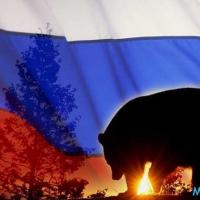Presentation on the theme of the life and work of Akhmadulina. Biography and creativity of Bella Akhmadulina. And finally, I will say: goodbye, do not commit to love. Losing my mind. Or ascend to a high degree of insanity
slide 1
Description of the slide:
slide 2
Description of the slide:
slide 3
Description of the slide:
slide 4
Description of the slide:
In 1964, she starred as a journalist in Vasily Shukshin's film "Such a guy lives." The tape received the Golden Lion at the Venice Film Festival. In 1964, she starred as a journalist in Vasily Shukshin's film "Such a guy lives." The tape received the Golden Lion at the Venice Film Festival. In 1968, while divorcing Nagibin, Akhmadulina took up her adopted daughter Anna. In the 1970s, the poetess visited Georgia, since then this land has occupied a prominent place in her work. Akhmadulina translated N. Baratashvili, G. Tabidze, I. Abashidze and other Georgian authors. From the son of the Balkar classic Kaisyn Kuliev - Eldar Kuliev (b. 1951) in 1973 Akhmadulina gave birth to a daughter, Elizabeth. In 1974, she married for the fourth and last time - to the theater artist Boris Messerer, leaving the children with her mother and a housekeeper. Bella Akhmadulina repeatedly spoke out in defense of representatives of the Soviet intelligentsia persecuted by the authorities: Andrei Sakharov, Lev Kopelev, Georgy Vladimov, Vladimir Voinovich. Her statements in their defense were published in The New York Times and repeatedly broadcast on Radio Liberty and Voice of America.
slide 5
Description of the slide:
Since 1977, Akhmadulina has been an honorary member of the American Academy of Arts and Letters. Since 1977, Akhmadulina has been an honorary member of the American Academy of Arts and Letters. The poetry collection Chills, which collected all the poems written over 13 years, was published by the emigrant publishing house "Posev" (1969, Germany) Despite this "seditious" event, Akhmadulina's books, although they were subjected to strict censorship, continued to be published in the USSR : Music lessons (1969), Poems (1975), Candle (1977), Snowstorm (1977), etc. In 1979, Akhmadulina participated in the creation of the uncensored literary almanac Metropol. Akhmadulina has repeatedly spoken out in support of Soviet dissidents - Andrei Sakharov, Lev Kopelev, Georgy Vladimov, Vladimir Voinovich. Her statements in their defense were published in The New York Times, repeatedly broadcast on Radio Liberty and Voice of America. In 1993, Akhmadulina signed the "Letter of the 42". In 1988, the book Selected was published, followed by new collections of poetry. She died on the evening of November 29, 2010 in an ambulance. According to the husband of the poetess Boris Messerer, death was due to a cardiovascular crisis. The president Russian Federation D. A. Medvedev expressed official condolences to the relatives and friends of the poetess. Farewell to Bella Akhmadulina took place on December 3, 2010 at Central House writers in Moscow. On the same day she was buried at the Novodevichy cemetery.
slide 6
Description of the slide:
Slide 7
Description of the slide:
Slide 8
Description of the slide:
Slide 9
Description of the slide:
Slide 10
Description of the slide:
slide 11
Description of the slide:
slide 12
Description of the slide:
slide 13
Description of the slide:
Slide 14
Description of the slide:
slide 15
Description of the slide:
slide 16
Description of the slide:
Slide 17
Description of the slide:
Slide 18
Description of the slide:
Slide 19
Description of the slide:
slide 1
 slide 2
slide 2
 slide 3
slide 3
 slide 4
slide 4
 slide 5
slide 5
 slide 6
slide 6
 Slide 7
Slide 7
 Slide 8
Slide 8
 Slide 9
Slide 9
 Slide 10
Slide 10
A presentation on the topic "Bella Akhmadulina" can be downloaded absolutely free of charge on our website. Project subject: Literature. Colorful slides and illustrations will help you keep your classmates or audience interested. To view the content, use the player, or if you want to download the report, click on the appropriate text under the player. The presentation contains 10 slide(s).
Presentation slides

slide 1
About Bella Akhmadulin
Akhmadulina Bella (Isabella) Akhatovna, Russian poet, prose writer, translator, one of the greatest Russian lyric poets of the second half of the 20th century.

slide 2
BIOGRAPHY
Bella Akhmadulina was born on April 10, 1937 in Moscow. Her father is a Tatar, deputy minister, and her mother is a Russian of Italian origin, who worked as a translator in the KGB. She started writing poetry in her school years.

slide 3
Creation
Poetry for Akhmadulina is revelation itself, a meeting inner peace poet with the world of new (tape recorder, plane, traffic light) and traditional (candle, friend's house) objects. For her poetry, everything - even any little thing - can serve as an impulse, inspire a bold fantasy that gives birth to bold images, fantastic, timeless events; everything can become spiritualized, symbolic, like any natural phenomenon (“The Tale of the Rain”, 1964). Akhmadulina expands her vocabulary and syntax, turns to archaic elements of speech, which she interweaves with modern colloquial language.

slide 4
For the first time, the works of Bella Akhmadulina saw the light in 1954. Then there was a study at the Literary Institute named after A.M. Gorky, which the poetess graduated in 1960. Since then, one after another, her poetry books have been published: "String" (1962), "Chills" (Frankfurt, 1968), "Music Lessons" (1969), "Poems" (1975), "Candle" (1977), " Dreams about Georgia" (1977, 1979), "Snowstorm" (1977), "Metropol" almanac ("Many dogs and a dog", 1980), "Mystery" (1983), "Garden" (1987), "Poems" ( 1988), Favorites (1988), Poems (1988), Coast (1991), Casket and Key (1994), Noise of Silence (Jerusalem, 1995), Row of Stones (1995) , "My very poems" (1995), "Sound indicating" (1995), "Once in December" (1996), "Contemplation of a glass ball" (1997), "Collected works in three volumes" (1997), "A moment of being "(1997), "Near the Christmas Tree" (1999), "Beautiful Features of My Friends" (2000), "Poems. Essays" (2000), "Mirror. XX Century" (poems, poems, translations, stories, essays, performances , 2000)

slide 5

slide 6
Personal life
Akhmadulina was the first wife of Yevgeny Yevtushenko
Her second husband was Yuri Nagibin

Slide 7

Slide 8

Slide 9
Order of Merit for the Fatherland, II degree (August 11, 2007) - for outstanding contribution to the development of national literature and many years of creative activity Order of Friendship of Peoples (1984) Laureate of the State Prize of the USSR (1989) Laureate of the State Prize of Russia (2004) Laureate of the Prize of the President of the Russian Federation in the field of literature and art (1998) Laureate of Brianza (Italy, 1998) Laureate of the magazine Friendship of Peoples (2000) Laureate of the Bulat Okudzhava Prize (2003)

Description of the presentation on individual slides:
1 slide
Description of the slide:
To the 80th anniversary of Bella Akhmadulina Teacher of the Russian language and literature of the Assumption School Torskaya L.V. 2017
2 slide
Description of the slide:
3 slide
Description of the slide:
4 slide
Description of the slide:
Biography Bella (Isabella) Akhmadulina is a Soviet, Russian poetess, prose writer, translator, one of the greatest lyricists of the second half of the 20th century. She was born on April 10, 1937 in Moscow. Her father is a Tatar, deputy minister, and her mother is Russian, of Italian origin, who worked as a translator in the KGB. Bella began writing poetry during her school years.
5 slide
Description of the slide:
The Akhmadulin family was the first wife of Yevgeny Yevtushenko, later the wife of Yuri Nagibin. From the union with screenwriter Eldar Kuliev in 1973, a daughter, Elizabeth, was born.
6 slide
Description of the slide:
Family In 1974, she married theater designer Boris Messerer. Bella Akhmadulina with her husband, artist Boris Messerer
7 slide
Description of the slide:
Creativity The beginning of Bella Akhmadulina's literary path came at a time when such luminaries of Russian literature of the twentieth century as B. Pasternak, A. Akhmatova and V. Nabokov were alive and active. It was Akhmadulina who had the difficult mission to pick up the poetic baton from the hands of her great predecessors, to restore the seemingly forever broken connection of times, not to let the chain of glorious traditions of Russian literature be interrupted.
8 slide
Description of the slide:
Creativity Poet Bella Akhmadulina entered Russian literature at the turn of the 1950s and 1960s, when there was a massive interest in poetry, and not so much in printed as in voiced poetic word. In many ways, this "poetic boom" was associated with the work of a new generation of "sixties". One of the most prominent representatives of this generation was Bella Akhmadulina, who, along with A. Voznesensky, E. Yevtushenko, R. Rozhdestvensky, B. Okudzhava, played a huge role in the revival of public consciousness in the country during the "thaw".
9 slide
Description of the slide:
Creativity The heroes of Akhmadulina's poems were Russian poets - from Alexander Pushkin, Anna Akhmatova and Marina Tsvetaeva to contemporaries - Andrei Voznesensky, Yevgeny Yevtushenko and Bulat Andrei Voznesensky, Bella Akhmadulina and Yevgeny Yevtushenko Okudzhava.
10 slide
Description of the slide:
Creativity of Bell Akhmadulin "Andrey Voznesensky" Craft brought our souls together, branded with a blue star. I loved my significance only in connection with and in the neighborhood with you. She was unspeakably good only because, in the first orphanhood, her soul disinterestedly knew how to fuss about your superiority. About your forehead she said: - I myself saw how the golden brand smoked between the eyebrows, whose meaning is the supreme mercy.
11 slide
Description of the slide:
Creativity Bella Akhmadulina - the author of numerous essays - about V. Nabokov, A. Akhmatova, M. Tsvetaeva, Ven. Erofeev, A. Tvardovsky, P. Antokolsky, V. Vysotsky and other large creative people, which, according to her, “decorated and justified with their participation the different times of the common time, which imperceptibly became an era.”
12 slide
Description of the slide:
Bella Akhmadulina "THEATRE" to V. Vysotsky This death is not mine, it is damage and offset of my life, my forehead rested against the wall. But when the Theater lights up and extinguishes its lamps, Tragedy will take the stage. Suddenly it's not too late to hide behind the scenes in absentia? Will not go! I'll hide my head in a velvet crack. Doomed capricious vain whim - to shrink, to get used to seclusion - is it really wine? Let me survive. This mournful story is excessive. I don't remember a gesture or a word from the role. But the prompter laughs, the ruler of fate: say: I remember everything, I'm here, I'm ready. I say I'm ready. I remember. I'm here. We exist and hear the voice that will play along with me. In the midst of madness, no, in the midst of dementia, villainy alone thinks sensibly: the dying Hamlet. It will be heard after: has the One who loved life gone crazy and forgot about vitality. Give, Theater, to play out a noble story, a pale-faced parterre plunging into horror.
13 slide
Description of the slide:
14 slide
Description of the slide:
Creativity One of the main themes of Bella Akhmadulina's lyrics is friendship, one of the strongest and most beautiful feelings, often associated with the sadness of loss and parting. "Along my street that year ..." - one of such poems, which was set to music by M. Tariverdiev and became a famous song from the movie "Irony of Fate, or Enjoy Your Bath! "Along My Street".
15 slide
Description of the slide:
Creativity "Don't give me a lot of time" Don't give me a lot of time, don't ask me questions. Do not touch my hands with kind and faithful eyes. Do not go through the puddles in the spring, following the trail of my footprint. I know that nothing will come out of this meeting again. Do you think that I go out of pride, that I am not friends with you? I am not out of pride - out of sorrow I hold my head so straight.
16 slide
Description of the slide:
Creativity The feeling of loss and loneliness of the human soul is a frequent motif of the poetess's lyrics. Art "is not intended to amuse people, but to bring them suffering," - so the young Bella Akhmadulina wrote in her article back in her student years. One of these poems - "Oh, my shy hero ..." - the heroine of Svetlana Nemolyaeva reads soulfully in Eldar Ryazanov's Office Romance.
17 slide
Description of the slide:
"Oh, my shy hero" Oh, my shy hero, you cleverly avoided shame. How long have I played a role without relying on a partner! I never resorted to your damned help. Among the wings, among the shadows, you escaped, imperceptible to the eye. But in this shame and delirium, I walked before a cruel audience - everything is in trouble, everything is in sight, everything is lonely in this role. Oh, how you cackled, parterre! You did not forgive me the shameless evidence of my losses, the harmlessness of my smile. And your herds eagerly went to drink from my sorrow. Alone, alone - in the midst of shame I stand with slumped shoulders. But the reckless crowd does not see the real hero. Hero, how scared you are! Don't be afraid, I won't betray you. All our role is my only role. I lost badly in it. All our pain is my only pain. But how much pain. How. How.
18 slide
Description of the slide:
"Spell" Do not cry for me - I will live a happy beggar, a kind convict, a southerner who is frozen in the north, a consumptive and evil Petersburger in the malarial south I will live. Do not cry for me - I will live by that lame-footed woman who went out onto the porch, by that drunkard who drooped on the tablecloth, and by this one that paints the Mother of God, I will live as a miserable bogomaz. Do not cry for me - I will live by that literacy taught girl, who in the future will fuzzy my poems, my red bangs, like a fool will know. I will live. Do not cry for me - I will live a sister more merciful and merciful, in military recklessness before death, but under my star and bright somehow, but still I will live. 1968

Creativity Poetry for Akhmadulina is a revelation itself, a meeting of the poet's inner world with the world of new (tape recorder, plane, traffic light) and traditional (candle, friend's house) objects. For her poetry, everything, even any little thing, can serve as an impulse, inspire a bold fantasy that gives birth to bold images, fantastic, timeless events; everything can become spiritualized, symbolic, like any natural phenomenon (“The Tale of the Rain”, 1964). Akhmadulina expands her vocabulary and syntax, turns to archaic elements of speech, which she interweaves with modern colloquial language.

For the first time, the works of Bella Akhmadulina saw the light in 1954. Then there was a study at the Literary Institute named after A.M. Gorky, which the poetess graduated in 1960. Since then, one after another, her poetry books have been published: "String" (1962), "Chills" (Frankfurt, 1968), "Music Lessons" (1969), "Poems" (1975), "Candle" (1977), " Dreams about Georgia" (1977, 1979), "Snowstorm" (1977), "Metropol" almanac ("Many dogs and a dog", 1980), "Mystery" (1983), "Garden" (1987), "Poems" ( 1988), Favorites (1988), Poems (1988), Coast (1991), Casket and Key (1994), Noise of Silence (Jerusalem, 1995), Row of Stones (1995) , "My very poems" (1995), "Sound indicating" (1995), "Once in December" (1996), "Contemplation of a glass ball" (1997), "Collected works in three volumes" (1997), "A moment of being "(1997), "Near the Christmas Tree" (1999), "Beautiful Features of My Friends" (2000), "Poems. Essays" (2000), "Mirror. XX Century" (poems, poems, translations, stories, essays, performances , 2000)



From the son of the Balkar classic Kaysyn Kuliev Eldar Kuliev in 1973, she gave birth to a daughter, Elizabeth. Daughter Elizaveta Kulieva, like her mother, graduated from the Literary Institute. The second daughter, Anna, graduated from the Polygraphic Institute and designs books as an illustrator.

English ("Fever and Other New Poems", New York, 1969; "The Garden", New York, 1990) German ("Musikstunden", Berlin, 1974; "Das Gerausch des Verlusts", Leipzig, 1995) Italian ( "Tenerezza", Parma, 1971; "Poesie scelte", Rome, 1993; "Poesie", Milan, Spiralli, 1998) The work of B. Akhmadulina herself is well known in the world. Her poetry has been translated into many languages.

Order of Merit for the Fatherland, II degree (August 11, 2007) for outstanding contribution to the development of national literature and many years of creative activity Order of Friendship of Peoples (1984) Laureate of the State Prize of the USSR (1989) Laureate of the State Prize of Russia (2004) Laureate of the Prize of the President of the Russian Federation in the field of literature and art (1998) Laureate of the "Brianza" (Italy, 1998) Laureate of the magazine "Friendship of Peoples" (2000) Laureate of the Bulat Okudzhava Prize (2003)

On November 29, 2010, the great poetess and beautiful woman Bella Akhatovna Akhmadulina died near Moscow Peredelkino. She was 73 years old. The death of Akhmadulina was a real shock to everyone who knew her. She possessed not only a special lyrical gift, but also an amazing civic courage, a sense of justice and an understanding of her destiny and duty. Prezentacii.com




